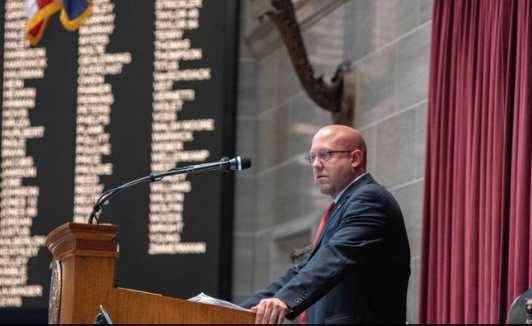“There should be no exceptions to a ban on slavery,” said Democratic U.S. Senator Jeff Merkley following passage of Measure 112 in Oregon.

Voters in Alabama, Tennessee, Oregon, and Vermont approved ballot measures Tuesday that would bar forced labor as punishment for those convicted of crimes in those states—an effort to close what some characterize as a “slavery loophole” contained in many state constitutions as well as within the U.S. Constitution’s 13th Amendment, which put an end to chattel slavery in 1865.
“The idea that we as a state have said that no human being—regardless of their past—should be considered a slave or involuntary servant, how is that not exciting?”
While advocates for prisoner rights applauded passage in those four states, a similar effort to ban forced convict labor in Louisiana—known as Amendment 7—was soundly defeated with roughly two-thirds voting against. In Lousiana, the ballot proposal was mired in controversy over the “muddled” wording of the measure.
The approved measures, as The Hill reported early Wednesday, “are victories for advocates looking for states to revise language in their constitutions that allow forced labor in the criminal justice system.”
Following news of the passage of Measure 112 in Oregon and similar initiatives elsewhere, Sen. Jeffery Merkley (D-Ore.) said, “Tonight, voters in Oregon and other states have come together across party lines to say that this stain must be removed from state constitutions. Now, it is time for all Americans to come together and say that it must be struck from the U.S. Constitution. There should be no exceptions to a ban on slavery.”
Sterling Cunio, a board member of Oregonians United to End Slavery, which backed the measure, told Oregon Public Broadcasting that the approval sends an important message.
“The idea that we as a state have said that no human being—regardless of their past—should be considered a slave or involuntary servant, how is that not exciting?” Cunio said.
“To see that not only Oregonians voted to remove this language from our state’s document, but the hope and the message, the optimism that is serves for people who are currently incarcerated who have been deemed and classified slaves,” he added. “I can’t tell you what a relief it is to know that there is no longer a legal status of slave or involuntary servitude in Oregon.”
Update: This piece was updated to reflect an important dynamic about the ballot measure that failed in Louisiana.
Common Dream’s work is licensed under a Creative Commons Attribution-Share Alike 3.0 License. Feel free to republish and share widely.
[content id=”79272″]








